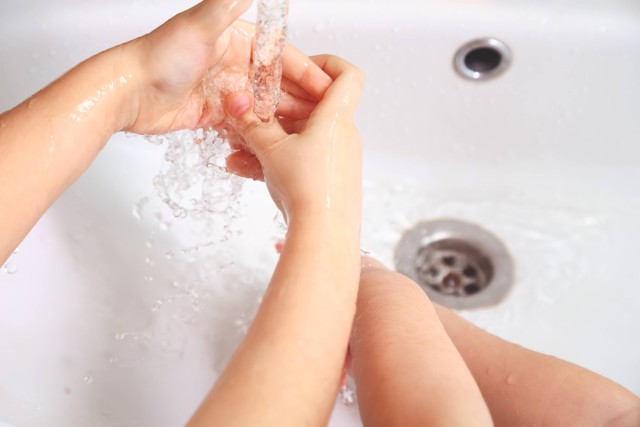The Importance of Summer Servicing of Thermostatic Mixing Valves (TMVs)

Water system maintenance is extremely important, with it acting as a preventive measure for greater health and safety issues within the system. Most water systems require annual servicing, recommissioning, and flushing so, it is important for facilities teams to adequately allocate time for this. Safely doing this in a school setting, with vulnerable end-users, is essential. So, how can a facilities team in a school setting utilise summer shutdown to remain on top of water system maintenance?
The Convenience of School Closures
School holiday closures offer a convenient opportunity for facilities teams to conduct necessary maintenance that can be difficult to do when students are there. Couple this with prolonged school closures over the summer, water systems risk stagnation due to little use, and the maintenance regimes become more critical to safety.
For example, the lack of flushing and use means the water may become unsafe for drinking, cleaning, cooking, and other activities that it may be needed for. Simply turning the water system back on can cause serious health issues, including the spread of Legionnaire’s disease. So, it is important for those responsible to take steps to ensure that the water systems are safe for when staff and children return.
Thermostatic Mixing Valves (TMVs)
TMVs are used to maintain the domestic hot water supplied to the user at a constant and safe temperature, when variations in the hot and cold-water supply conditions and draw-off flow rates occur. The failsafe design shuts off the mixed water flow automatically in the event of a disruption in the hot or cold-water supply to the valve.
With TMVs in place, water can be safely stored above, and flow through, the system at temperatures above 60C, killing any harmful bacteria. TMVs which are designed with a failsafe function will automatically shut down the flow to prevent the discharge of dangerously hot water out of the outlet. This is a particularly useful function in a school setting, with end-users having a reduced ability to perceive risk.
It is also important to consider the manufacturing and design of a TMV to ensure that the valve meets the requirements of BS 7942:2000 and the National Health Service model engineering specification D08 for use in healthcare premises, hospitals, care homes, and schools including TMV2 and TMV3 accreditations.
Servicing, Recommissioning & Flushing
When schools are closed, and water flow is reduced, harmful bacteria can grow within the system. The build-up of harmful bacteria, like Legionella, can cause greater health and safety issues by affecting the quality of the water. As a result, during the period of shut down, or just prior to the return, it is essential for a servicing and recommissioning plan to be put in place for each system to allow safe start-up.
The requirements for recommissioning a school building water system will vary, and the level of work and investment should be appropriate for the risk. For very simple buildings flushing alone is a minimum expectation and may be sufficient. However, for most buildings, some form of cleaning and disinfection is likely to be needed.
However useful regular TMVs are, they don’t completely eradicate the risk of Legionella growing in the dead leg of the outlet if a system is only thermally disinfected up to the TMV. To thermally purge the system past the TMV to the outlet can be a timely exercise, as regular TMVs would need to be isolated or removed from the system to allow this to take place.
In this instance, it is suggested that a TMV with the added feature of a thermal override function is fitted in place of the regular TMV, for example, the Mixcal Careflo Plus®. The Mixcal Careflo Plus® TMV with thermal override function removes the need to take off the TMV to ‘flush’ out the system, making the process quicker and more efficient.
It is important that sufficient plans are in place to ensure system safety for when schools return in September. Water system maintenance, from servicing to recommissioning, to flushing, should be at the forefront of the minds of those in facilities teams in education as we approach the end of the school year. With this, industry experts should be contacted to ensure clarity in carrying out risk assessments, and then the system maintenance and flushing.
Ed Morris is Technical Manager at Altecnic







